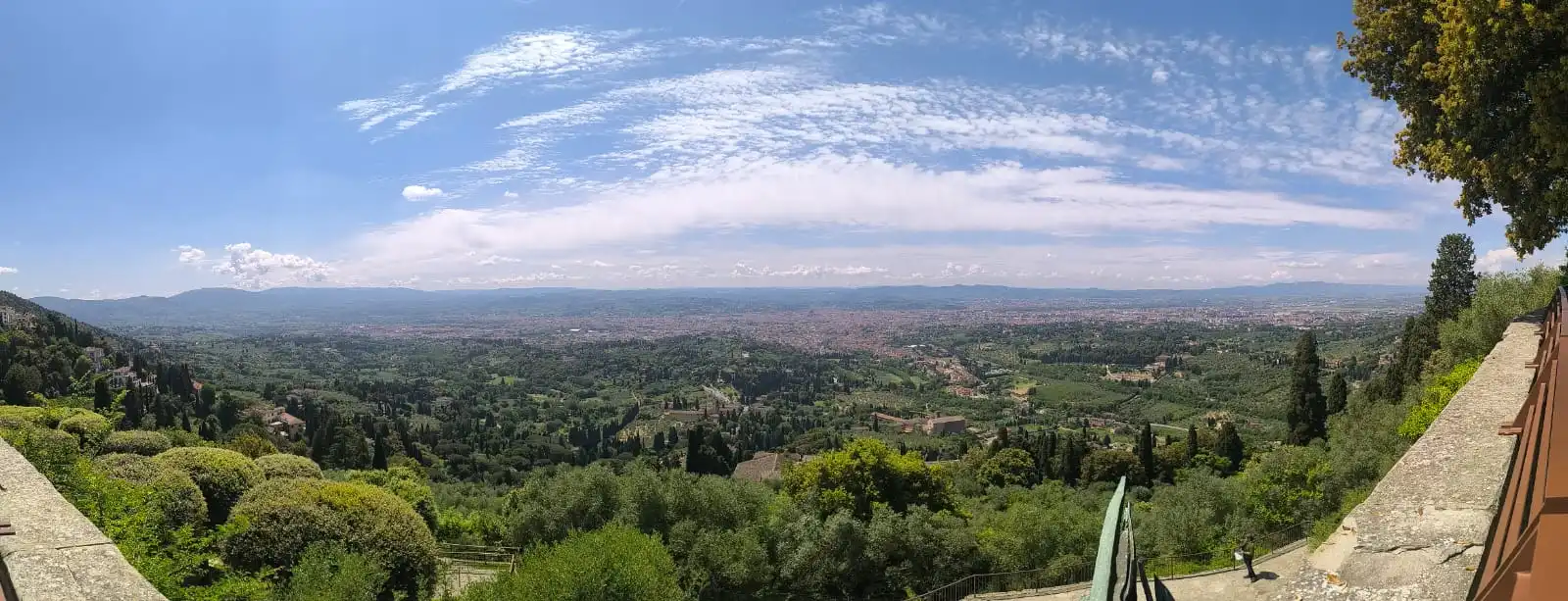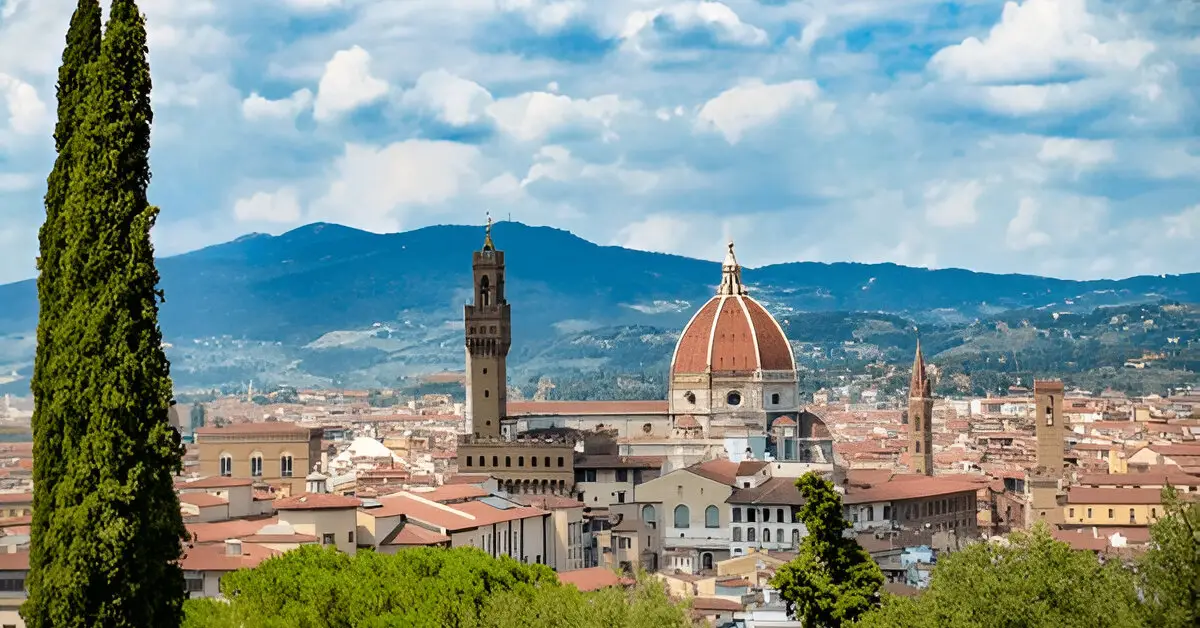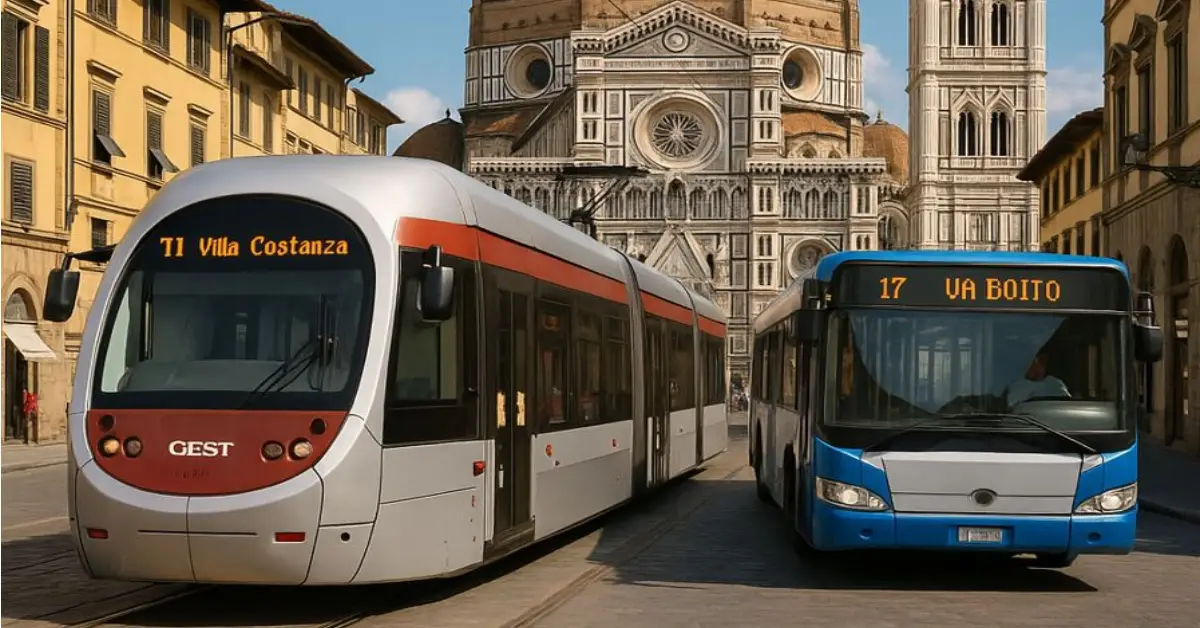Yes, Florence is widely considered a good place to live in 2025 for creatives, digital nomads, students, and retirees who value culture, lifestyle balance, and historical surroundings. While it’s not without its drawbacks, such as tourist congestion and central housing costs, Florence offers a high quality of life thanks to its walkability, healthcare system, and vibrant expat community.
A 2025 study by the European Urban Livability Index ranked Florence among the top 5 mid-sized European cities for lifestyle satisfaction. The study highlighted Florence’s excellent public safety, cultural access, healthcare infrastructure, and local engagement, making it especially appealing to non-Italians looking to settle in a culturally rich, manageable urban environment.
Why Florence is a good place to live?
Florence is a good place to live because it balances historical beauty with a relaxed lifestyle. Unlike Rome, which can feel chaotic, or Milan, which is often career-centric, Florence offers residents a slower, more personal urban experience. Moreover, the cost of living in Florence is cheaper than other metro cities like Milan, Bologna, and Rome.
The main reasons to live in Florence are outlined below.
-
- Florence offers access to world-renowned art schools and universities.
- Florence is best known for coworking spots, reliable internet, and a rising community of remote professionals.
- Retirees from all over the Italy move to Florence due to its Pleasant climate, good healthcare, and a peaceful atmosphere.
What are the best neighborhooods in Florence to live?
The best neighborhoods in Florence to live include, Santa Croce, Santo Spirito, Campo di Marte, Novoli, Gavinana, Isolotto, Ugano, and Scandicci.
| Neighborhood | Reasons to Live |
|---|---|
| Santa Croce | Central, artistic, historic charm |
| Santo Spirito | Local vibe, lively nightlife |
| Campo di Marte | Quiet, green, family-friendly |
| Novoli | Modern buildings, university zone |
| Gavinana | Residential, green, authentic life |
What is the cost of living in Florence?
A 2025 report from Numbeo, a global crowd-sourced cost-of-living database, places Florence as moderately priced compared to other major Italian cities. It remains more affordable than Milan and comparable to Bologna in overall monthly expenses.
The table below highlights the cost of living based on monthly house rent, groceries, tranport, and other utilities.
| Category | Cost Estimate (Monthly) | Details & Tips |
|---|---|---|
| Housing (Rent) | ||
| – City Center | €1,400 – €1,800 | 1-bedroom apartment, higher demand from expats, students, and short-term visitors. |
| – Outskirts | €850 – €1,100 | More space for less cost; good options in Novoli and Campo di Marte. |
| Groceries (for 2) | €400 – €500 | Use markets like Sant’Ambrogio for fresh, affordable produce. |
| Utilities | €120 – €180 | Includes gas, electricity, water, and internet. |
| Transport Pass | ~€35 | Monthly ATAF bus pass; bike-sharing also available. |
| Overall Comparison | Florence < Milan, ≈ Bologna | Housing is cheaper than Milan; overall costs similar to Bologna. |
What are the Pros and Cons of Living in Florence?
The pros and cons of living in Florence are mentioned in the table below.
| Pros | Cons |
|---|---|
| Rich history, culture, and food | Difficult to find a house for rent |
| Home to the world-famous Duomo, Uffizi Gallery, and Accademia Gallery | High tourist volume during peak season, causing traffic jams |
| Diverse lifestyle and community | No metro system, local buses are functional but infrequent |
| Friendly locals | Language barrier outside tourist zones |
| Pleasant weather throughout the year | |
| More economical compared to Milan and Bologna |
What should you know before moving to Florence, Italy?
Florence is one of the most admired cities in the world. Moving here means experiencing history, culture, and daily life in the heart of Tuscany. But like any relocation, it comes with both benefits and challenges.
1. Quality of Life
Florence offers a high quality of life for many residents. The city is safe, walkable, and full of artistic treasures. You are surrounded by landmarks such as the Duomo, Uffizi Gallery, and Accademia Gallery. Food culture is exceptional, with fresh markets and traditional trattorias. The climate is generally mild, making outdoor living enjoyable almost year-round.
2. Cost of Living
Living in Florence is often more affordable than in larger Italian cities such as Milan or Bologna. Daily expenses like food and transportation are reasonable. However, finding rental housing can be difficult. Apartments in the city center are limited and often in high demand, especially during tourist season. Many locals recommend exploring neighborhoods like Campo di Marte or Gavinana for quieter, more affordable options. Housing agencies like Immobiliare and Idealista help you find suitable accomodation in Florence.
3. Neighborhoods to Consider
Listed below are the popular neighborhoods to live in Florence.
- Santa Croce → Central, historic, close to nightlife and culture
- Santo Spirito → Lively, artistic, with a strong local vibe
- Campo di Marte → Family-friendly, greener, quieter
- Novoli → Modern, university area with new buildings
- Gavinana → Authentic, residential, more relaxed pace
- Feisole → Panoramic view of Florence, chepaer accomodations

4. Transportation and Daily Mobility
Florence does not have a metro system. Most people walk, cycle, or use local buses, which are functional but sometimes infrequent. Because the historic center is compact, many residents find it easy to live without a car. However, traffic congestion increases during peak tourist seasons.
5. Language and Community
Italian is the main language of daily life. In tourist zones, English is widely spoken, but outside of that, learning basic Italian will make integration smoother. Locals are generally friendly and welcoming, and the city hosts a growing expat community. There are also international schools and universities that attract students and professionals from around the world.
Who Should Consider Moving to Florence?
Florence is an excellent choice for:
-
Students interested in art, fashion, or history
-
Professionals in creative industries
-
Retirees seeking cultural richness and a slower pace
-
Families looking for safety and strong community life
What is the population of Florence, Italy?
According to Wikipedia, Florence, the capital of Tuscany in Italy, has an estimated population of 362,353 inhabitants, and 989,460 in its metropolitan province as of 2025.
Can I live in Florence as a Digital Nomad?
Yes, you can live in Florence as a Digital Nomad. Italy started its Digital Nomad visa program in 2024 providing easier long-term stays for remote workers earning outside the country.
Where can I find student rooms for rent in Florence, Italy?
Visit CX Florence, The Student Hotel, and The Social Hub for renting room as a student in Florence.
Can I buy a property in Florence, Italy?
Yes, it is possible to buy a porperty in Florence, Italy as a foreigner. Visit local agencies like Immobilista or Idealista to buy a property.
Is Florence a safe city?
Yes, Florence is safe city to live in Italy. There are no reports of violent crimes in Florence. However, before moving to Florence, one must be aware of common scams like pickpocketing, fake jewelry, menu scams, overcharging taxis, etc.

Mosaab is a seasoned content writer and SEO expert with a passion for travel, culture, and global cuisine. Drawing from his experience as a courier in Florence, he offers unique insights into the city’s hidden gems and rich history.



